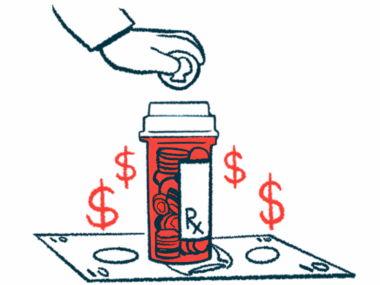APDA pledges $4M for Parkinson’s research, up 55% from 2024
Funding slated for projects on brain research, exercise programs, care access
Written by |

The American Parkinson Disease Association (APDA) is providing $4.04 million for the 2025-2026 funding year to support research projects on Parkinson’s disease.
That represents an increase of more than 55% from last year, according to an association press release.
Research areas receiving funding range from brain changes and molecular mechanisms behind Parkinson’s development and progression, to at-home exercise programs and gender disparities in access to healthcare. These projects aim to provide insights into how Parkinson’s develops and can be treated.
The association said the amount does not include a new allocation to support APDA researchers who lost funding from other sources this year and applied for bridge funding. APDA said it will announce decisions on these grants by early October.
“Our mission is deeply rooted in our tagline, ‘Strength in optimism. Hope in progress,’ said Leslie A. Chambers, APDA’s president and CEO. “By providing essential seed funding, we empower researchers to explore innovative ideas and gather critical pilot data. We are immensely proud to play a pivotal role in advancing these groundbreaking projects that might otherwise never take flight, and in doing so, we continue to bring hope to everyone impacted by Parkinson’s disease.”
Fellowship to help neurologist study brain cells
The funding will help Gaurav Chattree, MD, a physician scientist at Stanford University, use mouse models of Parkinson’s disease to identify and reactivate malfunctioning brain cells involved in movement and cognitive issues. Chattree was awarded the George C. Cotzias Memorial Fellowship, which provides young neurologists with $125,000 a year to help them establish their careers.
Michelle Fullard, MD, associate professor of neurology at the University of Colorado, received this year’s Diversity in Parkinson’s Disease Research Grant, a one-year grant to study inequities in Parkinson’s disease communities. She will explore whether a web-based tool can help women with Parkinson’s decide on deep brain stimulation surgery.
A new grant, the Social Science Research Grant, was awarded to Tim Passmore, PhD, a professor at Oklahoma State University. Passmore will develop an evidence-based home exercise manual to help Parkinson’s patients maintain independence and mobility. The grant supports projects that address the psychological, social, and cultural aspects of Parkinson’s disease.
The funding also covers eight postdoctoral fellowships — supporting projects in areas including brain circuits involved in cognitive impairment, the molecular mechanisms of alpha-synuclein toxicity, neuroinflammation, gene therapies, and neural signaling — in addition to research grants and continued funding for APDA’s nine Centers for Advanced Research, which host research programs and late-stage clinical translation.
“We are confident that the research we are funding will make a significant impact in the fight against Parkinson’s disease,” Chambers said. “This vital work is made possible by the support of our generous APDA donors.”
Rebecca Gilbert, MD, PhD, chief mission officer at APDA, said the association has “an incredible responsibility to the Parkinson’s community to choose the research that shows the most promise for real progress, as well as a responsibility to our donors to make sure every dollar counts in the search for answers.”



